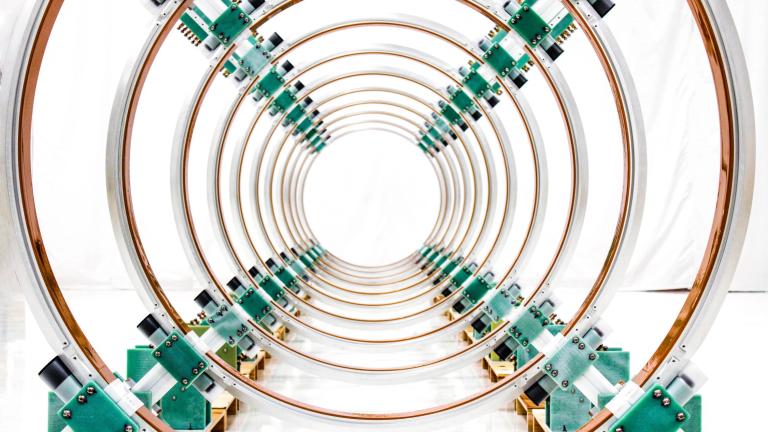
A startup backed by Sam Altman says it’s on track to flip on the world’s first fusion power plant in five years, dramatically shortening the timeline to a carbon-free energy source that’s eluded scientists for three-quarters of a century.
Helion Energy’s announcement that it’s on the verge of commercializing the process that powers the sun is an astounding claim—and a questionable one, according to several nuclear experts. That’s mainly because the company hasn’t said and won’t comment on whether it’s passed the first big test for fusion: getting more energy out of the process than it takes to drive it.
Nevertheless, the 10-year-old company, which is based in Everett, Washington, has already lined up its first customer for the planned commercial facility, striking a power purchase agreement with the software giant Microsoft. Helion expects that the plant will be built somewhere in the state of Washington, go online in 2028, and reach its full generating capacity of at least 50 megawatts within a year.






